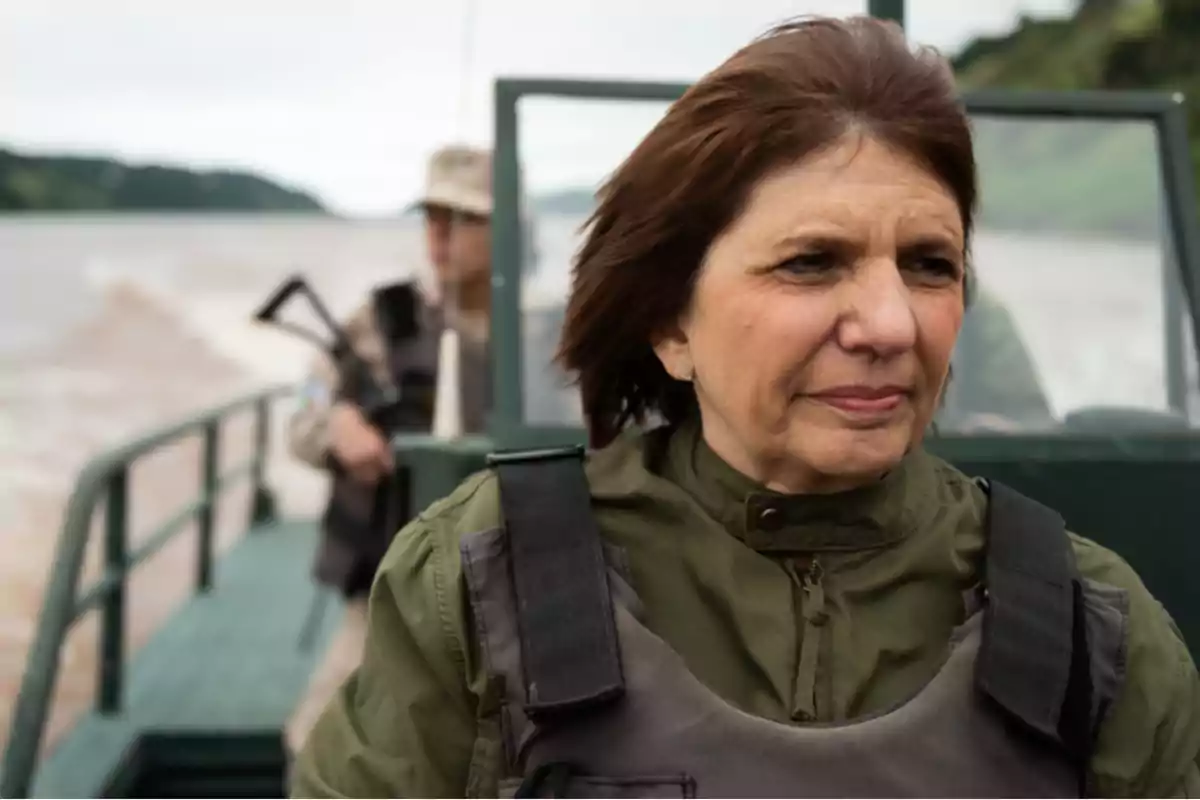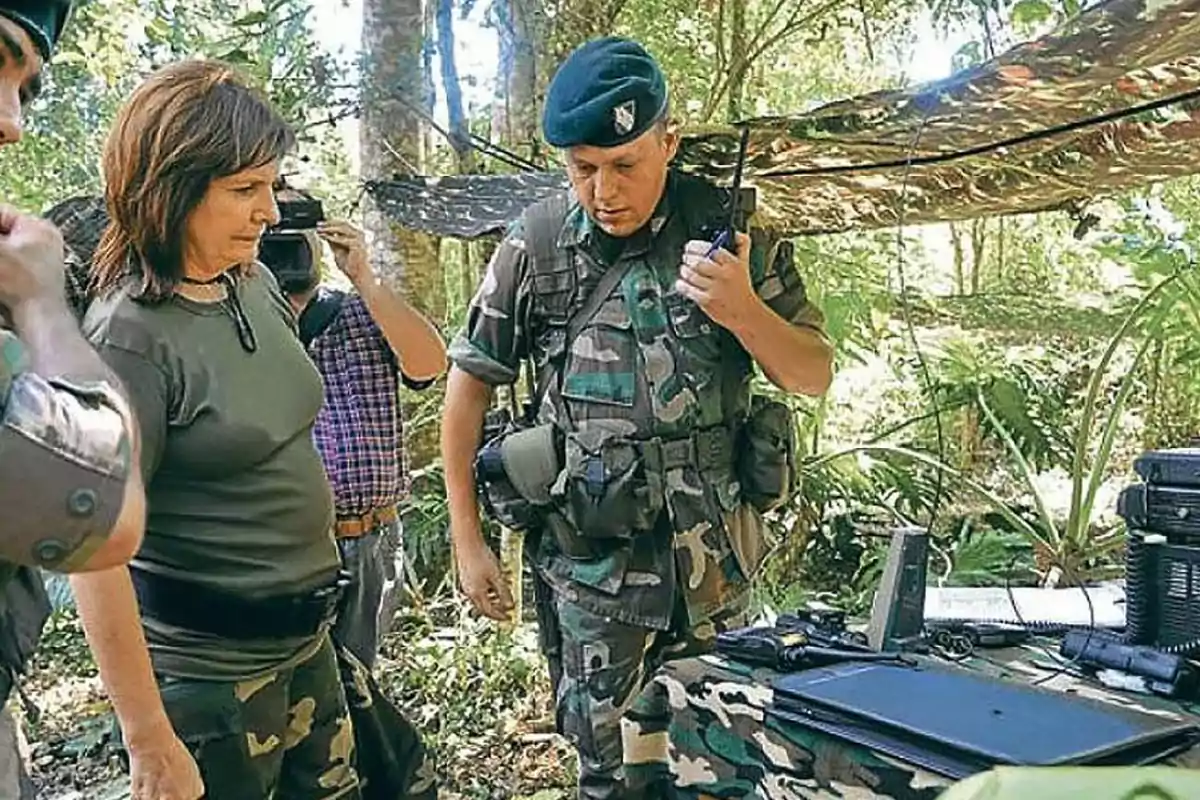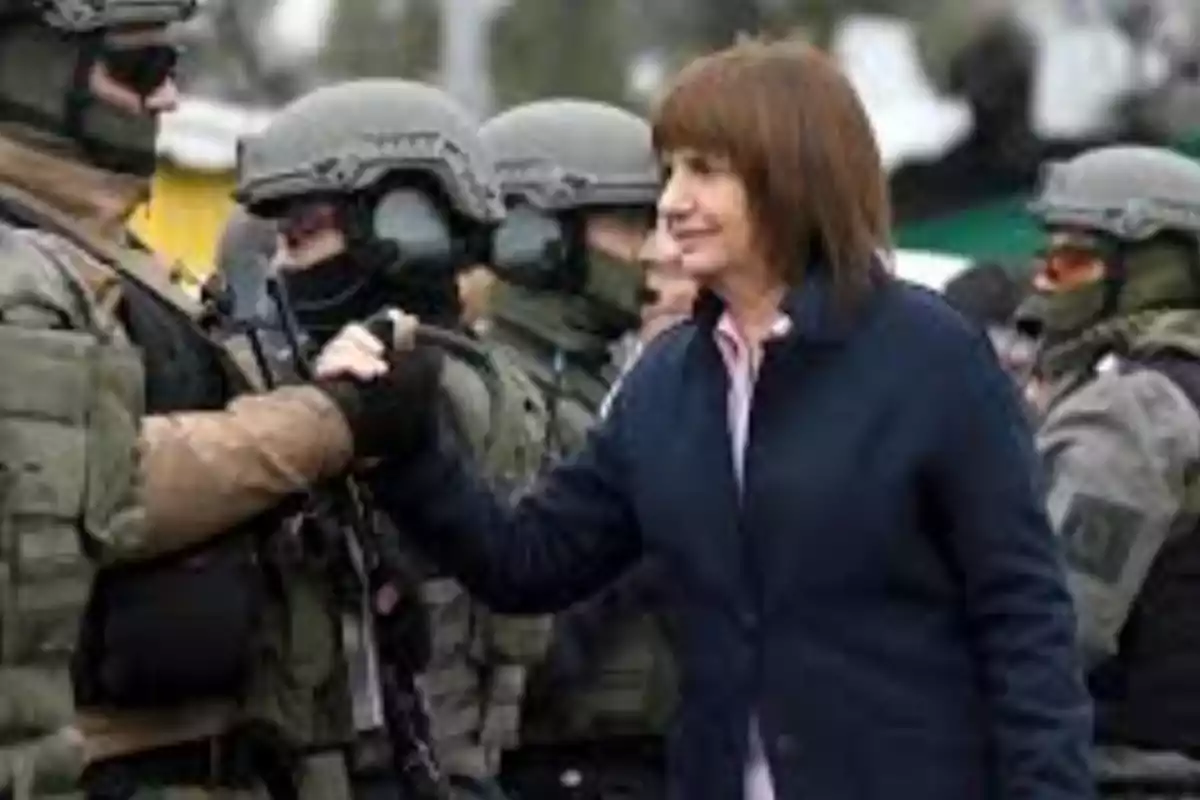
Bullrich launches the Guacurarí Plan to combat crime on the border with Brazil
The Guacurarí Plan is being implemented in Misiones to combat drug trafficking, human trafficking, and smuggling
With the aim of intensifying the fight against organized crime in strategic areas of the country, the Ministry of Security has formalized a new reinforcement at the border between eastern Misiones and southern Brazil, particularly in the city of Bernardo de Irigoyen, through resolution 626/2025, recently published in the Official Gazette.
The measure, signed by Minister Patricia Bullrich, establishes the creation of the Guacurarí Unified Command, which will be responsible for coordinating operations between federal and provincial forces to address complex crimes such as drug trafficking, human trafficking, money laundering, and smuggling.
"We are advancing a determined policy against organized crime in a critical area where local and transnational gangs operate with connections in Brazil," officials from the Ministry stated.
A key area with clandestine crossings and the presence of Brazilian gangs

The region in question covers a 25-kilometer (15.5-mile) stretch of dry border, which is difficult to access and lacks natural barriers. According to the official text, this territory facilitates illegal crossings through clandestine routes. On both sides, there are paved avenues that allow for quick and discreet movements, which have been exploited by criminal gangs.
Among the groups identified as having a presence and influence in the area are Primeiro Comando da Capital (PCC) and, to a lesser extent, Comando Vermelho, both of Brazilian origin. These groups operate in coordination with local gangs, creating a transnational criminal structure.
"The local idiosyncrasy has become intertwined with the activity of criminal gangs," the resolution details. "Some act as intermediaries influenced by Brazilian criminal groups."
How the Guacurarí Unified Command will operate
The new Unified Command will be composed of representatives from the Argentine Federal Police, National Gendarmerie, Naval Prefecture, Airport Security Police, and the Federal Penitentiary Service. Liaisons designated by the Misiones Provincial Police will also be added.
Its main function will be to supervise and coordinate inter-agency operations to restore territorial control in vulnerable border areas. This first phase of the operation will have an initial duration of 180 days, with the possibility of extension depending on the evaluation of results.

General reinforcement in northern Argentina
The Guacurarí Plan is added to other actions already implemented by the national government, such as the Güemes Plan – active since December 2024 in Aguas Blancas, Puerto Chalanas, Tartagal, and Salvador Mazza (Salta) – and the Roca Plan, focused on the border with Bolivia. At the beginning of May, 1,900 members of the Argentine Army joined these operations with the aim of striking at drug trafficking and organized crime.
"All crimes linked to drug-related criminality decreased in this first four-month period," said Salta's Secretary of Security, Nicolás Avellaneda, highlighting the effectiveness of the deployment.
In line with new migration policies
This reinforcement is also aligned with recent decisions by the Executive regarding migration policy. Among them are the tightening of requirements for residency, the imposition of fees for migration procedures, and the promotion of deportation strategies for foreigners with irregular status.
"Argentina was too permissive for those who enter irregularly," stated presidential spokesperson Manuel Adorni, explaining the new measures.
Overall, the government seeks to build a comprehensive border security framework, coordinating national and provincial forces and migration policies, to reduce transnational crime and guarantee territorial sovereignty.
More posts: